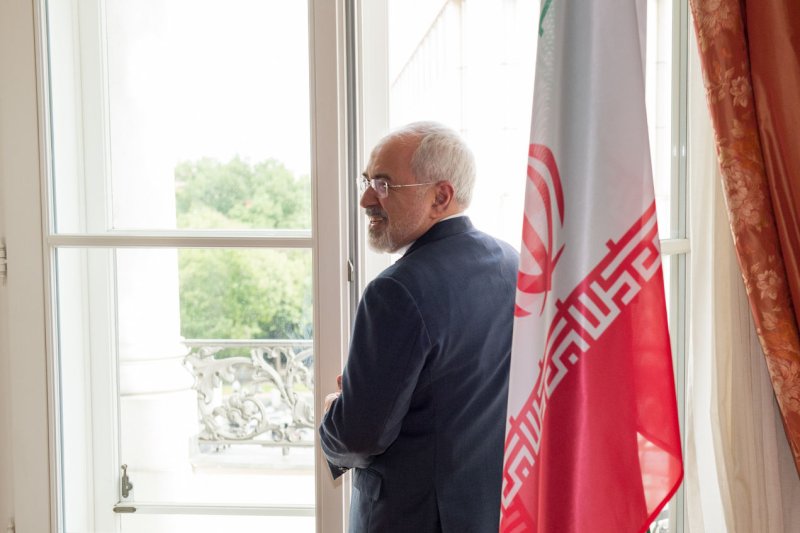Iranian Foreign Minister Mohammad Javad Zarif said Tehran won't respond to threats, sanctions pressure or public relations stunts from the United States. File Photo by Ali Mohammadi/UPI |
License Photo
Aug. 1 (UPI) -- As Iranian oil concerns threaten a tight market, Iran's foreign minister said that Tehran wasn't falling for public relations stunts from the United States.
Iranian Foreign Minister Javad Zarif said through his official Twitter account the U.S. government under President Donald Trump should respect the Joint Comprehensive Plan of Action, a multilateral agreement brokered by the five permanent members of the U.N. Security Council, plus Germany.
The agreement secured commitments from Iran to scale back its nuclear research ambitions in exchange for sweeping relief from sanctions, some of which targeted its oil sector. Trump's decision in May to leave the JCPOA put the multilateral deal in serious jeopardy and November sanctions risk sidelining millions of barrels of Iranian oil at a time when markets are tight.
Zarif said the JCPOA has been working as designed so far.
"U.S. can only blame itself for pulling out & leaving the table," he stated. "Threats, sanctions & PR stunts won't work."
Showing a preference for bilateral action, Trump said earlier this week he'd be open to meeting one-on-one with Iranian President Hassan Rouhani without preconditions, though later referenced the U.S. stance that Iran was a malign actor in the region.
Trump's face-to-face meeting with North Korean leader Kim Jong Un, while historic, realized little in terms of concrete agreements with Pyongyang, which has exhibited nuclear weapons capabilities.
Trump's call for a meeting with Rouhani was met with murmuring from market analysts who said it may be a sign a president watching gas prices increase at home ahead of midterm elections might blink on sanctions.
Joe McMonigle, a senior energy analyst at Hedgeye Risk Management, said senior U.S. officials have since walked backed the "no preconditions" clause, adding Tehran is unlikely to play along anyway.
"It takes two to tango, and Iran doesn't dance," he said in a statement.
Sanctions on Iran's oil don't take place until after the midterms, but McMonigle said he doesn't see Trump backtracking on his hard line on Tehran.
Iranian officials have said that if its oil exported are isolated by U.S. sanctions, it would choke off the Strait of Hormuz, host to about 20 percent of the global trade in oil.















